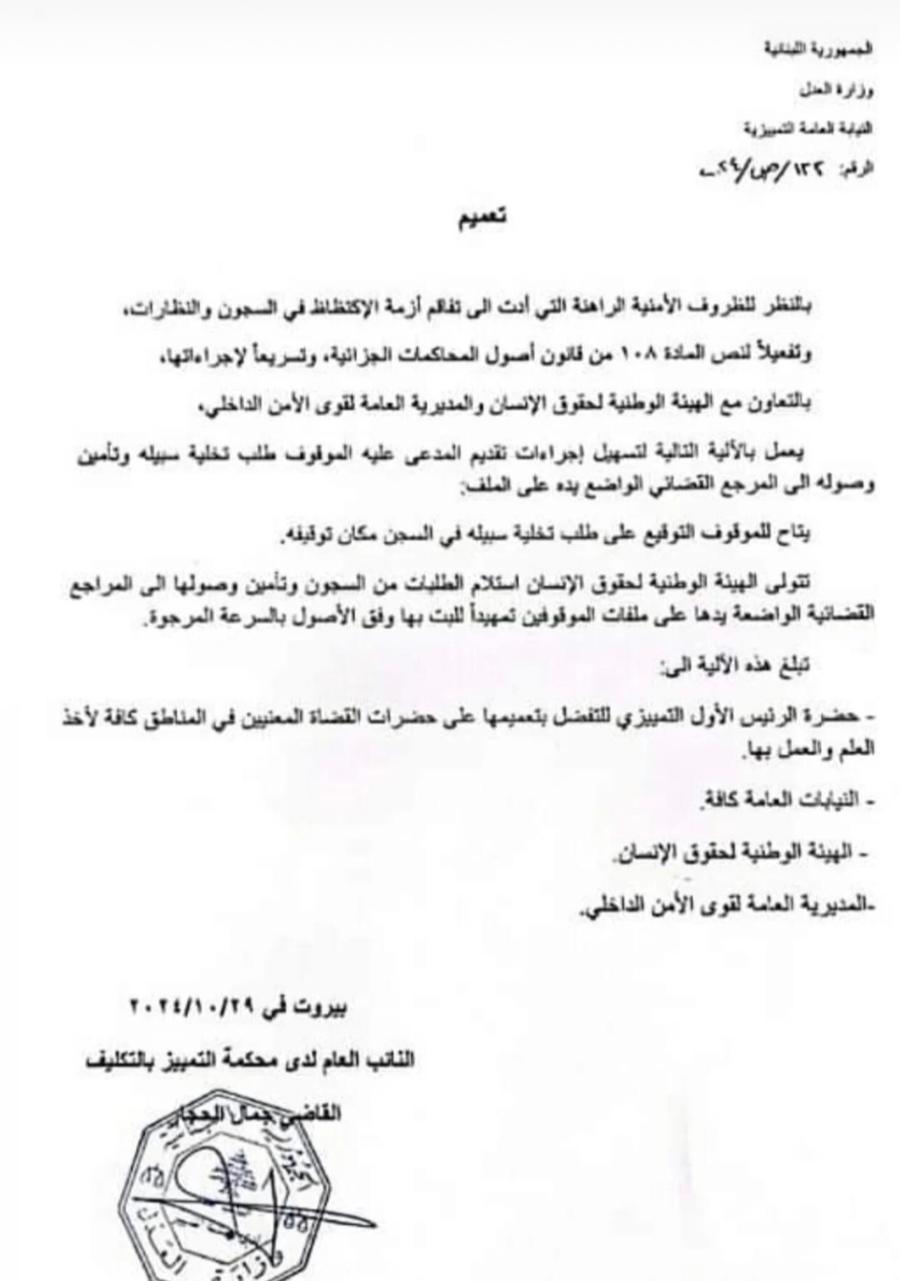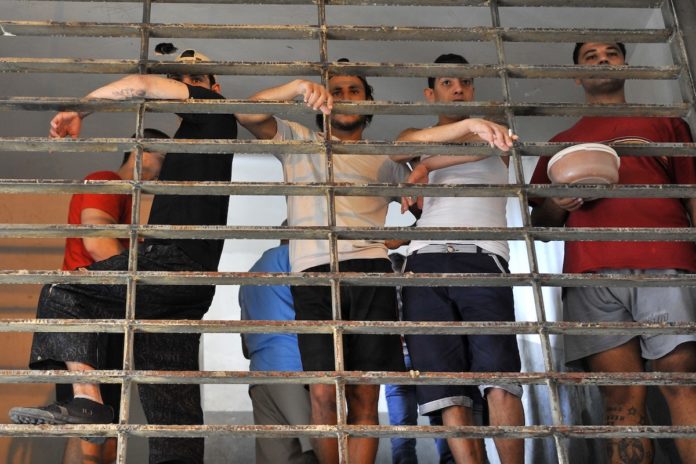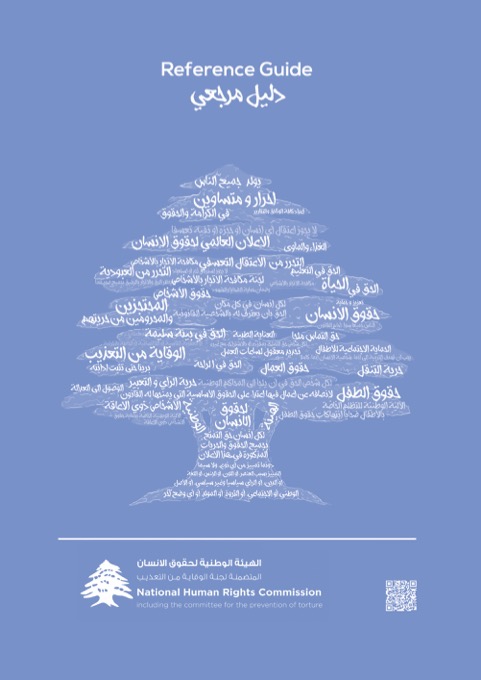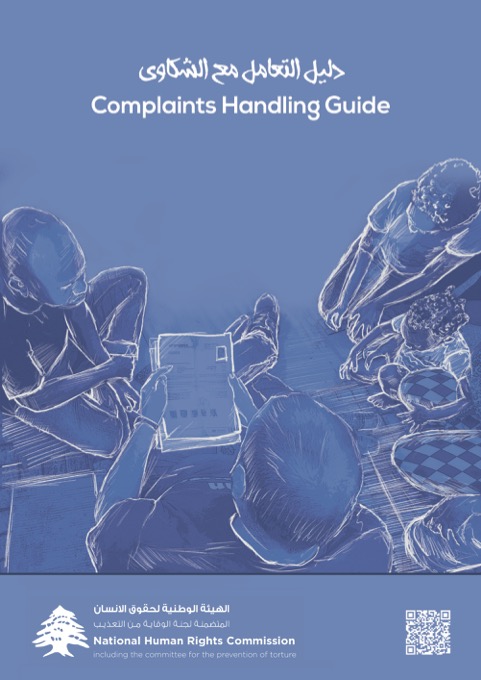The National Human Rights Commission, including the Committee for the Prevention of Torture (NHRC_CPT), has announced its continued efforts to support an initiative aimed at addressing overcrowding in Lebanese prisons and easing the burden on families amidst the ongoing Israeli aggression against Lebanon. The commission maintains coordination with judicial, security, and military authorities to expedite the processing of release applications for eligible detainees. Here are the main developments regarding the initiative:
Circular from the Public Prosecutor
Yesterday, Judge Jamal Al-Hajar, the Acting Public Prosecutor of the Court of Cassation, issued a circular stating: “In view of the current security conditions, which have exacerbated the overcrowding crisis in prisons and detention centers, and to activate Article 108 of the Code of Criminal Procedure and accelerate its processes in cooperation with the National Human Rights Commission and the General Directorate of Internal Security Forces, the following mechanism is established to facilitate detainee release applications and ensure they reach the relevant judicial authorities handling their cases:
- Detainees are permitted to sign their release applications at the place of detention.
- The National Human Rights Commission, including the Committee for the Prevention of Torture, is responsible for collecting these applications from prisons and ensuring their delivery to the relevant judicial authorities for prompt processing.
This mechanism is communicated to:
- President of the Court of Cassation of Lebanon to disseminate it among judges in all regions.
- All Public Prosecution Offices.
- The National Human Rights Commission.
- The General Directorate of Internal Security Forces.

Communication to the Minister of Defense
The head of the National Human Rights Commission, Dr. Fadi Gerges, sent a letter to Lebanese Defense Minister, retired Brigadier General Maurice Slim, requesting the Ministry of Defense’s cooperation with the Permanent Military Court. He called for collaboration from the court’s head, Brigadier General Khalil Jaber, as well as from the Military Prosecution, investigating judges, the Military Court of Cassation, and government commissioners to the military court. The letter seeks support for the commission’s assigned lawyers, facilitation of their tasks, and provision of necessary information to submit release applications for detainees and to process these applications through all court offices. This cooperation request arose after the commission’s team visited Roumieh Prison on October 21 and 24, 2024, where it was found that detainees eligible for potential release included some held on warrants issued by military investigating judges.
Legal Framework
Article 14 of Law No. 62, dated October 27, 2016 (establishing the National Human Rights Commission and the Committee for the Prevention of Torture), as amended, grants the commission and the committee the right to communicate with Lebanese or foreign authorities and request any documents or information relevant to their duties. Lebanese authorities are obligated to respond promptly. Article 25 of the same law further states that, to fulfill its mandate, the Committee for the Prevention of Torture is entitled to information from concerned authorities, particularly regarding locations of detention, the identity of detainees, and the legal grounds for their detention.
Goals of the Initiative
This initiative is implemented by the National Human Rights Commission in cooperation with the Geneva Centre for Security Sector Governance (DCAF), a well-known international organization that supports countries in improving the management of security and justice sectors. A team of specialized lawyers has been appointed to visit various prisons in Lebanon, review detainee case files, and verify the eligibility of detainees for release based on legal criteria. During these visits, lawyers examine legal files, assess case details in coordination with prison management, and confirm that all conditions for submitting release requests to the courts are met. These criteria include the duration of detention, progress of legal proceedings, and verification of no legal or public safety risks associated with the detainee’s release.
The initiative aims to achieve several humanitarian and social goals. On one hand, it seeks to reduce overcrowding in Lebanese prisons, which has placed a heavy burden on the state as prison management costs rise with the increasing number of detainees. On the other hand, the initiative aims to alleviate the burden on the families of detainees, who face challenging circumstances due to displacement and the ongoing Israeli aggression. Additionally, this initiative contributes to accelerating the pace of justice by reducing the caseload on the judiciary, allowing courts to focus on more complex cases requiring intensive follow-up. It also aims to mitigate psychological and social stress within prisons, as overcrowding often exacerbates issues of violence and rights violations.
Networking and Cooperation
To ensure the success of this initiative, the commission has held a series of meetings with the President of the Supreme Judicial Council, Judge Suhail Abboud, and Acting Public Prosecutor of the Court of Cassation, Judge Jamal Al-Hajar, to coordinate efforts and facilitate the submission and rapid processing of release applications. Judicial authorities have welcomed this initiative, and it has received notable support from the Prison Guard Command and the Prisons Division of the Internal Security Forces. All parties involved have expressed their readiness to cooperate with the commission and the designated lawyers to review detainees’ cases and expedite necessary legal procedures. This collaboration is expected to have a positive impact on releasing eligible detainees, especially with a genuine commitment among all parties to alleviate the suffering of prisoners and their families.


